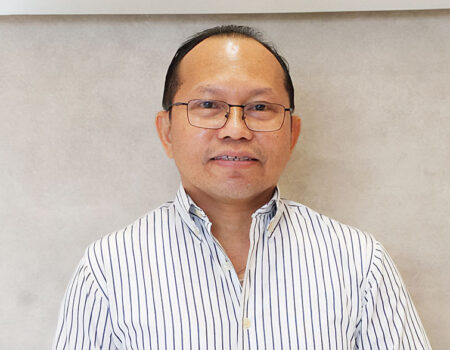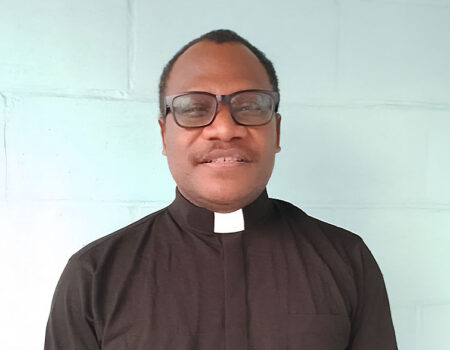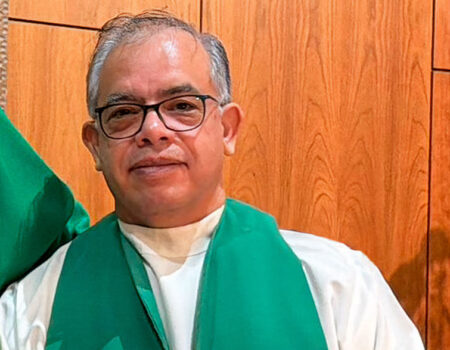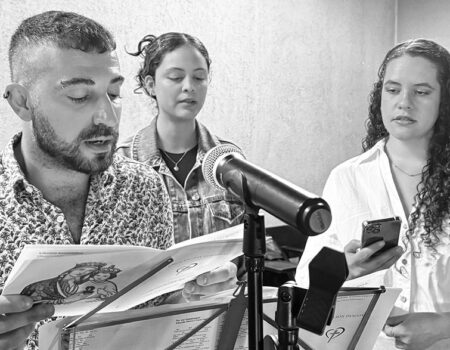Reflection: MSC mission in Cuba
Wednesday October 23, 2024
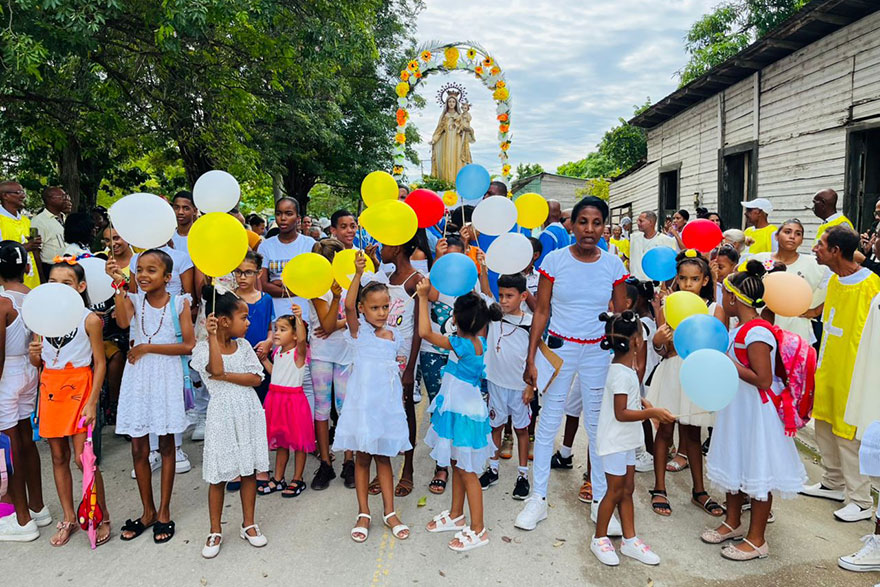
The MSC mission in Cuba was started by the MSC of the Province of the Republica Dominicana in 1999. Through cooperation with the MSC of the Indonesian Province, since 2014, the mission in Cuba has been served by the MSC from Indonesia. On this occasion, our confreres will share their experience working in the Diocese of Guantanamo, Cuba.
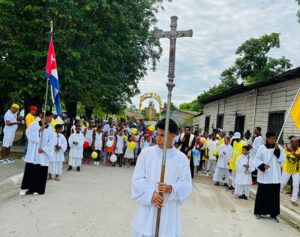
Diocese of Guantánamo. Since 2023, in the entire territory of the diocese of Guantánamo (which administratively covers the whole province of Guantánamo), there have been 11 parishes. According to the 2009 Yearbook of the Diocese of Guantánamo, out of a population of 1,117,535, the number of people who profess the Catholic faith is 769,426. According to the 2020 Papal report, the diocese of Guantánamo had a total of 197,400 baptised Catholic faithful at the end of 2019. Although the number of non-religious people is increasing, most still see Christianity (especially Catholicism) as their religion, even though most of them do not regularly attend mass. There is also the phenomenon of syncretism of the Catholic Faith with African and mestizo (Spanish descent).
Nuestra Señora de Las Mercedes Parish. There are 32 stations spread across two districts in our parish. Our parish area is the largest in the diocese of Guantánamo. We celebrated Mass in the parish and provided catechesis in the stations. Of the 32 stations, only the parish Centre and seven stations have mass. Outside of the seven stations, we conducted catechesis in their houses.
One of our new programs was to equip volunteers who will be sent with us to the stations to give catechesis. Previously, on catechesis days (every afternoon except Monday and Tuesday), we went to the zones (1 zone consisting of several neighbouring stations) with the Ketekis, who are MSC lay people, bringing food for the people.
Most of the parishioners still consider themselves Catholic. They are baptised Catholics, but they only come to church occasionally when someone in their family dies or during the celebration of the patron of the parish and patron of Jamaica City. The very challenging economic conditions and the reality of the people’s poverty made us think of doing something more. So, we organised the COMEDOR (Dining Room) programme, which feeds the poor (lunch) every Tuesday and Friday. There are about 50 people who receive this programme. For them, this programme is very useful and very beneficial.
Challenging mission. The mission in Cuba is very challenging, but we are optimistic about the development of the people in Cuba. The phenomenon of Catholics in Cuba is in line with the phenomenon of faithful in other countries, where many people have become indifferent to spiritual life. However, the number of baptisms is still increasing every year, so we must ensure that those baptised grow in faith and live their faith every day.
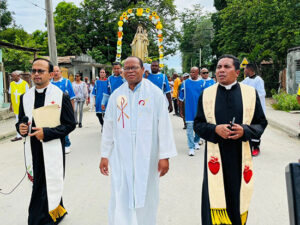
The pastoral and spiritual care is urgent. There are two groups of people: The first are those with a deep-rooted Catholic tradition that has been preserved in families despite the closure of churches for almost 50 years. This is not a large number. Most come from white families of Spanish descent. The second group are the new parishioners evangelised since 1998 and those whose families once practised Catholicism and are seeking their Catholic roots again. They are the majority of our parishioners.
Ametur ubique terrarum Cor Iesu Sacratissimum in aeternum. Our ministry in Cuba is not only to think and create pastoral work but also to struggle for our own daily needs. In this situation, we continue to serve with joy because we can take part in the work of the universal church amid an environment that is economically difficult and spiritually arid.
This is the sharing of our experience of the mission in Cuba. We feel joyful and grateful to be entrusted by the congregation to mission in Cuba. May our presence in Cuba give positive meaning and help grow the faith of the people we serve. May the sacred heart of Jesus be loved everywhere.
Philipus Seno Dewantoro, MSC


